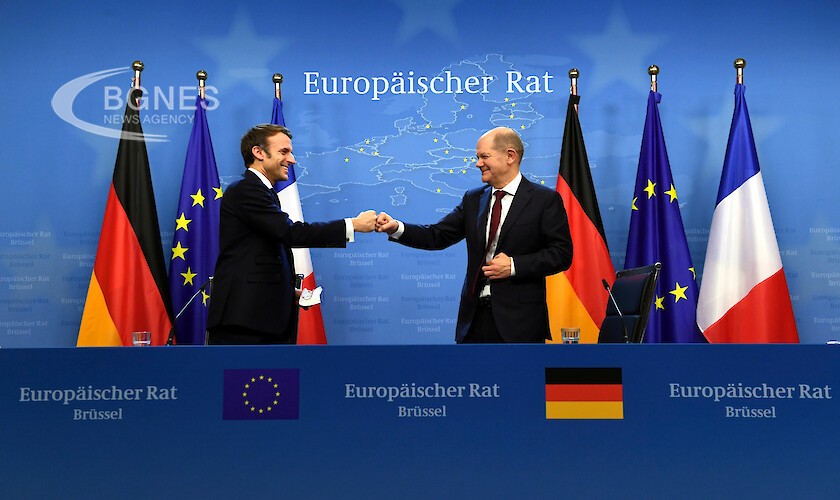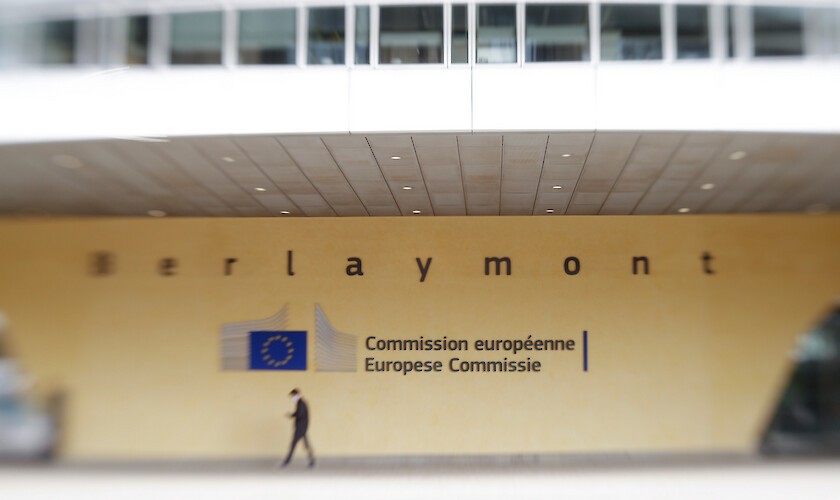On 1 January 2022, for the first time in 14 years, France took over the rotating presidency of the Council of the European Union.
The French Presidency will follow the main political lines outlined by President Emmanuel Macron in his speech on a sovereign, united and democratic Europe on 26 September 2017 at the Sorbonne. For the past four years, Macron and the government have been working to build true European sovereignty, which means Europe’s ability to exist autonomously to defend its values and interests.
The French Presidency of the Council of the European Union will continue this work for a more inclusive, sovereign, and democratic Europe.
The presidency’s priorities are in line with citizens’ expectations expressed in the September civil debate in 18 French regions as part of the Conference on the Future of Europe. This project, proposed by France in 2019, created a new forum for debate with European citizens, and the final contribution of the national panels was presented to the government in the autumn. Citizens’ recommendations in France and Europe have helped set the priorities of the French Presidency of the Council of the European Union.
Europe must face major economic, educational, migration, and military challenges. The French Presidency must be a moment of truth about the regulation and accountability of digital platforms, the pricing of carbon emissions at Europe’s borders on imported products, minimum wages, and relations with Africa.
The program of the French presidency has been coordinated with the trio. This system, which has been in place since 2009, sets long-term goals and sets out the main topics to be addressed over a period of 18 months. Following the Slovenian Presidency, France will begin a new cycle and work as a trio with the Czech Republic, which will take over the EU Council Presidency in the second half of 2022, and Sweden, which will be rotating President in the first half of 2023.
Despite its short duration, the French Presidency has set ambitious long-term goals. President Emmanuel Macron wants a new economic model for the European Union, with a strong emphasis on creating the right jobs. France, like Germany, wants Europe to be more independent, to be a united and strong actor on the international stage.
On December 9, French President Emmanuel Macron presented the country’s priorities for its six-month presidency, whose motto is “Recovery, Strength and Belonging”.
He pledged during his term in office to work for a strong and “sovereign” European Union.
“The aim of France is to work for the creation of a Europe that is strong in the world, fully sovereign, free in their choice, and responsible for their own destiny,” said macros.
The French president called for a new mechanism to protect the borders of the EU conditions of the migrant crisis.
“Europe must ensure the protection of its borders,” he said, adding that France will push for reform of the so-called. Schengen area for free travel between 26 countries in Europe.
A new economic model for the EU
Macron emphasized that the EU needs to review its strict budget deficit rules, as governments are spending heavily to save their economies from the effects of restrictions due to covid.
France will insist on a “revision” of the rules, which in particular require the deficit to remain below 3% of gross domestic product (GDP).
France will propose a new EU mechanism to prevent the import of agricultural products from deforested areas.
“We will also move forward to the creation of a European instrument to combat imports from deforested areas, which will aim to ban imports into the European Union of soybeans, beef, palm oil, cocoa, and coffee when they have contributed to deforestation,” said Macron.

Tackling unemployment
The President intends to strengthen the practice of civil service in the EU for all citizens under 25 years of age.
“We need to go further on the issue of European public service by six months for anyone under the age of 25,” Macron said. “I would like us to achieve concrete and sustainable implementation of this practice during our six-month presidency.
The initiative involves citizens aged 16 to 25 in projects ranging from environmental protection to drug prevention. Volunteer programs are mandatory, but consent to participate is voluntary
Development of a common position on security and defense.
Among France’s priorities for the coming months is to increase the EU’s ability to defend its borders. At the same time, the President of the European Commission announced the holding of a conference on defense before the signing of the Strategic Compass in March.
Climate and social issues, digitization
Various European laws are expected to be negotiated or adopted during the French Presidency.
Digital technologies: Priority will be given to the economic regulation and accountability of the platforms, especially with regard to hate speech, with the legislation on digital services and markets (DSA and DMA);
Ecological transition: Establishing carbon pricing at EU borders for imported products. It is a matter of economic and environmental efficiency;
Social issues: The adoption of European legislation on minimum wages will be a priority.

The Europe we want by 2030: investment, values, youth, culture, health
The French Presidency will help prepare Europe for tomorrow by laying the foundations for the following major changes:
A new model for growth and investment for the European Union and the euro area;
European values with tools to protect our democracies;
Young people with the expansion of the Erasmus program;
Culture, with the European Academy bringing together around 100 scholars from 27 countries in all subjects to enlighten the European debate;
Healthcare, with a real joint research agency and big research plans, for example for Alzheimer’s disease.
During the French Presidency of the Council of the European Union, it is planned to hold about 400 events throughout France and abroad. These include conferences, art workshops, debates, films, and collective activities “so that each of us can bring a piece of Europe”.
In his speech, Emmanuel Macron emphasized that the French Presidency would also be a time to look to the future by launching new European projects aimed at young people, defending democracy and values, and “strengthening the sense of shared European culture and history”.
The future of the Western Balkans
Regarding the problems in the Balkans, the President announced that a European conference on the Western Balkans will be held in June 2022.
“We are organizing a conference on the Western Balkans in June. This region is still suffering from contradictions and tensions,” Macron said. “We cannot build peace in Europe for the next 50 years if we leave the Western Balkans in the situation we are in today.”
He stressed that the EU must take responsibility, inter alia, for investment support for countries in the region. This is necessary to combat the interference and manipulation of some regional forces that are trying to destabilize Europe through the Balkans, “Macron said.

